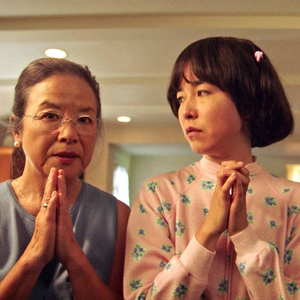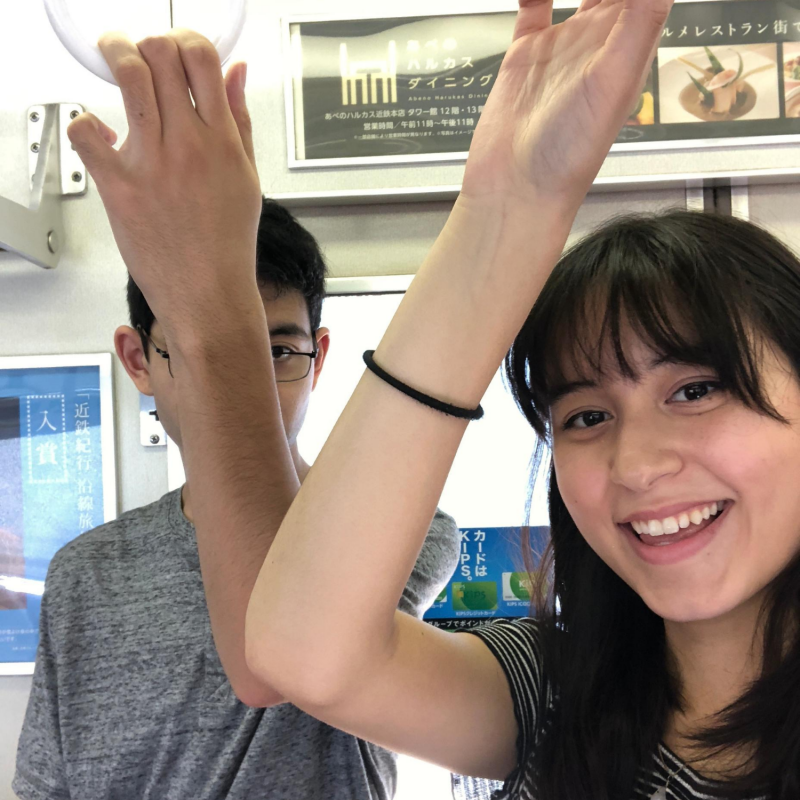BWW Blog: My Identity Imposter Syndrome and How One Show Helped Me Through It

Warning: This blog contains spoilers for the Hulu series PEN15!
A few weeks ago, I was facing identity imposter syndrome. This, which I have discovered, can be common among mixed race people, used to happen to me when I was younger but hadn't resurfaced much since. It began with someone saying, "I don't look Asian," and therefore I shouldn't really be offended at offensive things towards Asians. You see, to those who aren't mixed race, when something like this is said, it sticks heavy to our hearts, pulling us down to the earth whenever we attempt to affirm even just a tiny fraction of who we are. For the next few days, this sentence pulled me down, making me forget everything that has grounded me in my own identity. Suddenly, I remembered every single thing that has happened to me where people told me I wasn't Asian enough.
When I tried to join a NYU Asian Theatre club and they responded with "Sorry, only Asians can join."
 When I played the "guess my ethnicity game" with new friends as a kid. ...And just like that, I had forgotten everything that affirms my identity, and the hurt and the strength that comes with being part of a minority group. It was then, at my lowest point, when I questioned whether I could even claim my Asianness, that I decided to rewatch PEN15.
When I played the "guess my ethnicity game" with new friends as a kid. ...And just like that, I had forgotten everything that affirms my identity, and the hurt and the strength that comes with being part of a minority group. It was then, at my lowest point, when I questioned whether I could even claim my Asianness, that I decided to rewatch PEN15.
Let me just say this first. If you haven't seen this show, please go watch it (warning: some spoilers ahead). In the first few moments of the show, I started to chuckle as Maya's mother spoke to her in Japanese while giving her a bowl cut. In PEN15, Maya Erskine and Anna Konkle perfectly capture the awkwardness of middle school and puberty. Maya is half Japanese and half white like me, and seeing her on the screen, always makes me want to cry with happiness.
In the first episode, Maya is labeled as the Ugliest Girl in School. Though this specific title didn't exist at my school, I truly felt sometimes that I might've been the UGIS. Growing up, since I didn't see many Asian people like me in the media, and was instead surrounded by images of beautiful caucasion women, I didn't see my face as pretty. These thoughts I had were affirmed in elementary school when we played games where the girls chased the boys, and the boys told me they didn't want me chasing them. They were affirmed when people in high school said they didn't find me attractive, and when they made up nasty rumors about my romantic life. They were affirmed when the white kids in my school would say "you look so Asian" as an insult to their friends then glance at me, and look away.
So seeing Maya affirm these experiences I had, when she looks in the mirror at herself, tears streaming down her face, touching her eyes and hair, it feels like a sad, warm hug to my younger self. Telling her that you aren't alone and I went through this too.
This hug is extended into a later episode called "Posh" where Maya is excluded from choosing which Spice Girl she wants to be in a school project because of her race. The white girls who come over to Maya's house laugh at what's in her family's fridge, saying "ew, why are there fish heads," reminding me of all those times classmates would be disgusted by my mom's carefully made bento boxes and seaweed rice balls. Later, we see another mirror scene, but this time, Maya starts to fully realize that she looks different than her white classmates- an all too familiar moment for me of analyzing one's features and truly desiring to just fit into one identity instead of being in this in-between space. She tries to make her eyes bigger, then tries to make them appear smaller, before angrily giving her reflection the middle finger, and letting out a sad exhale... I exhale with her...
The next day at school, some white boys make fun of her saying things like "I am Japanese," with wacky accents while pulling their eyes back. Maya is found crying on the stairs by her older brother.
Maya's closeness with her brother in the show, reminded me of my close friendship with my twin brother. I am so glad I had a best friend to battle obstacles together with growing up and to affirm our identities together as we studied our Japanese and visited family in Japan. Just like Maya and her brother, we said "Baka" (idiot) to each other and criticized each other's Japanese; it was like our secret language at school amongst all of our white classmates.
Through moments like these in the show, it felt like Maya had looked me in the eyes and saw me, and understood what I had felt growing up as half Japanese. I'm not saying that PEN15 affirmed my entire identity. I did that with the community I found at Tisch, the strength I found in myself, and my family. But when I was feeling lost about who I was, PEN15 reminded me in little ways about who I am. Being mixed race is confusing. I think I've begun to accept that. There isn't really a solid way to know exactly who I am, especially when I let others decide who I am for me. But... I think it's time to wake up every morning and decide who I am all by myself, because I want all the other Hapa kids out there to know that it's confusing, I get it, but I am right there with you, and so is Maya Erskine.
Comments

Videos


